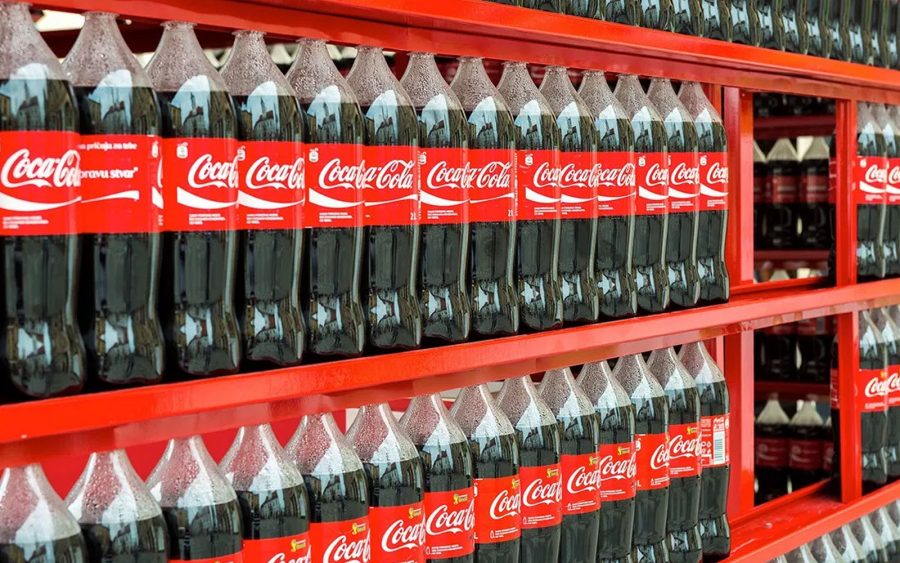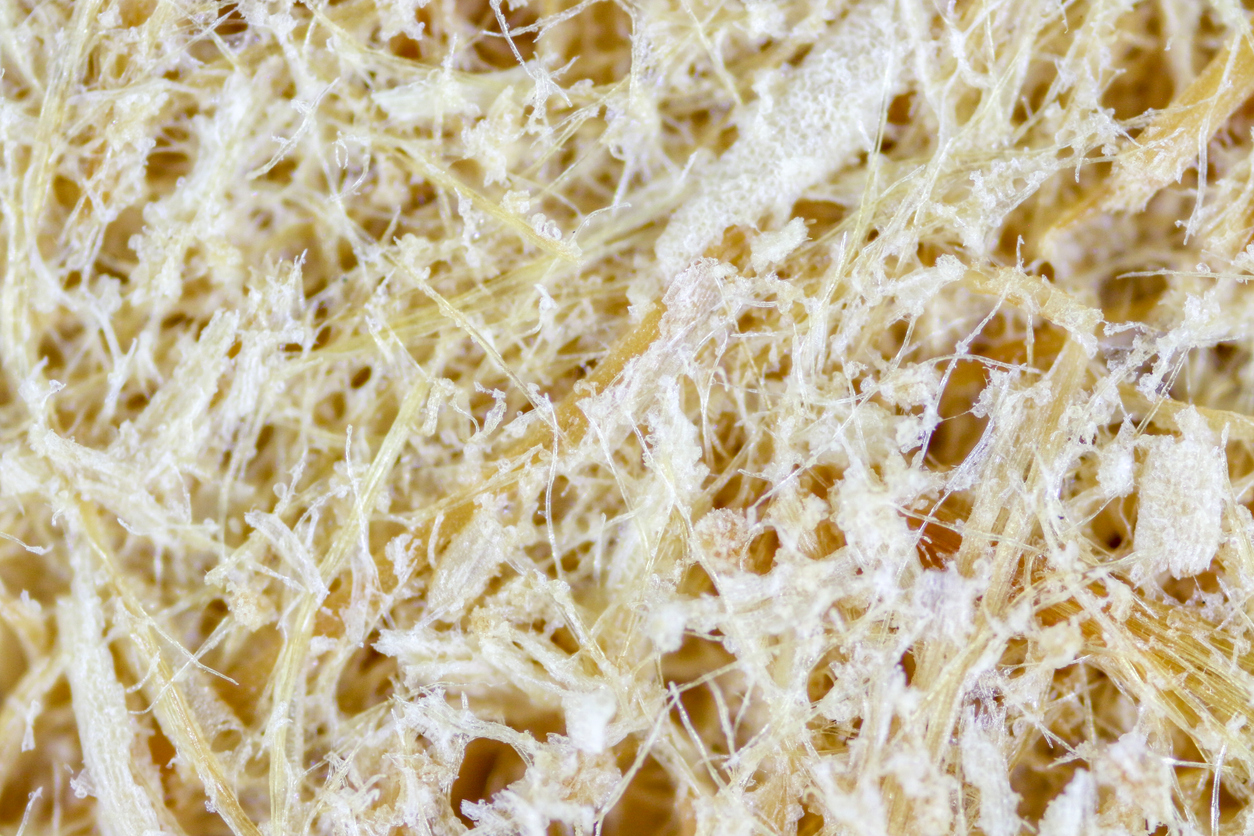Wigmore Trading: Your Partner in Cathodic Protection Systems for Nigerian Infrastructure
Wigmore Trading: Your Partner in Cathodic Protection Systems for Nigerian Infrastructure
Nigeria’s infrastructure is constantly in need of protection from corrosion, and Wigmore Trading is here to be your trusted partner in providing top-of-the-line cathodic protection systems. With our expertise and commitment to quality, we are dedicated to safeguarding Nigerian assets for years to come. Join us as we explore the importance of cathodic protection systems and how Wigmore Trading can help enhance the longevity of vital infrastructure in Nigeria.
Introduction to Wigmore Trading as a leading provider of cathodic protection systems in Nigeria
Introduction to Wigmore Trading as a Leading Provider of Cathodic Protection Systems in Nigeria
Wigmore Trading is a leading provider of cathodic protection systems in Nigeria, with over 15 years of experience in the industry. The company specializes in providing high-quality products and services for protecting underground and underwater structures from corrosion.
Corrosion is a major problem faced by infrastructure in Nigeria, especially due to the country’s harsh environmental conditions and the presence of corrosive elements such as saltwater. This can lead to significant damage to pipelines, tanks, offshore platforms, and other structures that are crucial for various industries like oil and gas, water treatment, transportation, and telecommunications.
To address this issue, Wigmore Trading offers a comprehensive range of cathodic protection solutions that effectively prevent corrosion and extend the lifespan of infrastructure. These solutions include sacrificial anode systems, impressed current systems, monitoring equipment, coating materials, and more.
One of the key factors that sets Wigmore Trading apart from its competitors is its commitment to quality. The company sources its products from reputable manufacturers worldwide who adhere to international standards such as NACE (National Association of Corrosion Engineers) and ISO (International Organization for Standardization). This ensures that customers receive reliable products that meet their specific requirements.
In addition to offering top-notch products, Wigmore Trading also provides expert installation services through its team of highly trained engineers. They have extensive knowledge about different types of cathodic protection systems and use state-of-the-art technology for installation. This guarantees optimal performance and longevity of the system.
Furthermore, Wigmore Trading also offers maintenance services for cathodic protection systems to ensure they continue functioning effectively throughout their lifespan. Regular inspections are carried out using advanced techniques like Close Interval Potential Surveys (CIPS) and Direct Current Voltage Gradient (DCVG) surveys to identify any potential issues or areas requiring repairs or replacements.
With its strong focus on customer satisfaction and technical expertise in the field of cathodic protection, Wigmore Trading has become a trusted partner for many companies in Nigeria. The company has successfully completed numerous projects across various industries, earning a reputation for delivering quality products and services on time and within budget.
Wigmore Trading is dedicated to providing effective and reliable cathodic protection systems to protect Nigerian infrastructure from corrosion. With its extensive experience, high-quality products, and skilled team of professionals, it continues to be the go-to solution provider for all corrosion-related needs in the country.
What is Cathodic Protection?
Cathodic protection is an essential method used to protect metal structures and equipment from corrosion. It is a technique that applies an electrical current to the metal surface, making it the cathode of an electrochemical cell. This process prevents corrosion by balancing out the natural corrosive reactions that occur on metal surfaces.
The main principle behind cathodic protection is based on the fact that all metals have a tendency to corrode when in contact with an electrolyte, such as soil or water. This occurs due to a difference in potential between different areas of the metal surface, causing electrons to flow from one area to another, resulting in corrosion. However, by applying a direct current (DC) through a system of sacrificial anodes or impressed currents, cathodic protection neutralizes this potential difference and stops corrosion from occurring.
There are two types of cathodic protection systems – galvanic and impressed current. Galvanic systems use sacrificial anodes made of more electronegative metals than the structure being protected (such as zinc or magnesium). These anodes corrode instead of the structure itself, effectively sacrificing themselves to protect it.
On the other hand, impressed current systems use external power sources, such as rectifiers or solar panels, which convert AC electricity into DC electricity for continuous protection against corrosion. The impressed current system can also be combined with sacrificial anodes for additional protection.
Cathodic protection is crucial for infrastructure in Nigeria due to its tropical climate and high levels of humidity which accelerate corrosion rates. Without proper protection measures in place, structures like pipelines, tanks, and bridges can quickly deteriorate and become unsafe for use.
Wigmore Trading offers comprehensive cathodic protection solutions for various industries across Nigeria. Our team of experts provides consultancy services backed by years of experience in designing and implementing effective cathodic protection systems tailored to meet specific project requirements.
We understand that every project has unique challenges; therefore our approach is to work closely with clients to determine the most cost-effective and efficient cathodic protection solution. We take into consideration factors such as soil resistivity, environmental conditions, and system maintenance requirements to ensure long-term protection of assets.
Cathodic protection is a critical aspect of maintaining infrastructure in Nigeria, and Wigmore Trading is your trusted partner for all your cathodic protection needs. With our high-quality products and expert services, we strive to protect your valuable assets and ensure their longevity. Contact us today for a consultation on how we can help safeguard your infrastructure against corrosion.
Importance of Cathodic Protection for Nigerian Infrastructure
Cathodic protection is a vital aspect of maintaining the integrity and longevity of infrastructure in Nigeria. With the country’s growing population and rapid development, the demand for reliable and durable infrastructure is at an all-time high. This makes it imperative to implement effective corrosion control measures, such as cathodic protection, to ensure the safety and stability of structures.
One of the major challenges faced by Nigerian infrastructure is corrosion. Corrosion occurs when metals are exposed to environmental factors such as moisture, oxygen, and chemicals. In a humid and tropical climate like Nigeria’s, this poses a significant threat to infrastructure such as pipelines, bridges, oil rigs, tanks, and other metal structures.
The consequences of corrosion can be severe and costly. It can weaken structural integrity, leading to collapses or failures that can result in injuries or even loss of life. The economic impact is also significant as it can disrupt essential services like water supply or transportation networks.
This is where cathodic protection plays a crucial role in protecting Nigerian infrastructure from corrosion damage. Cathodic protection is an electrochemical process that uses external electrical currents or sacrificial anodes to counteract the corrosive effects on metal surfaces.
There are two types of cathodic protection systems commonly used – galvanic (sacrificial) anode systems and impressed current systems. Galvanic anode systems use more active metals such as zinc or aluminum that corrode instead of the protected metal surface. On the other hand, impressed current systems use external power sources to create protective currents around metal structures.
Wigmore Trading understands the importance of implementing proper cathodic protection systems for Nigerian infrastructure projects. As one of Nigeria’s leading suppliers of corrosion control solutions since 1992, we have extensive experience working with various industries across the country.
We offer a wide range of high-quality products for both galvanic anode and impressed current systems tailored specifically for Nigerian conditions. Our team consists of highly trained and experienced professionals who provide expert advice and technical support to ensure the most effective cathodic protection solutions for your infrastructure.
In addition to our products, we also offer comprehensive services such as site surveys, design, installation, and maintenance to ensure the long-term performance of your cathodic protection system. We understand that each project is unique, so we work closely with our clients to develop customized solutions that meet their specific needs and budget.
Implementing proper cathodic protection systems is essential for Nigerian infrastructure’s reliability and longevity. With Wigmore Trading as your partner in corrosion control, you can be confident that your infrastructure will be protected from the damaging effects of corrosion for years to come.
Types of Cathodic Protection Systems offered by Wigmore Trading
At Wigmore Trading, we understand the importance of protecting Nigerian infrastructure from corrosion and deterioration. That’s why we offer a wide range of cathodic protection systems to suit different types of structures and environments. In this section, we will discuss the various types of cathodic protection systems that we offer.
1. Galvanic Cathodic Protection System: This is a passive form of cathodic protection that uses sacrificial anodes made of more active metals such as magnesium or zinc to protect the structure from corrosion. These anodes are connected to the structure through a metallic conductor and when they corrode, they release electrons that flow towards the protected structure, providing it with cathodic protection.
2. Impressed Current Cathodic Protection System: This is an active form of cathodic protection where a direct current (DC) power source is used to provide a continuous supply of electrons to the protected structure. The system consists of anodes, which are connected to the positive terminal of the DC power source, and cathodes, which are connected to the negative terminal. The current flow between these two electrodes creates a protective layer on the structure’s surface.
3. Hybrid Cathodic Protection System: As the name suggests, this system combines elements from both galvanic and impressed current systems for optimal performance. It uses sacrificial anodes along with an external DC power source to provide enhanced corrosion protection.
4. Conductive Polymer Cathodic Protection System: This is a relatively new technology that utilizes conductive polymers as an alternative to traditional metallic materials for cathode placement in impressed current systems. These polymers are lightweight, flexible, and highly conductive, making them ideal for protecting complex structures such as pipelines or offshore platforms.
5. Monitoring Systems: We also offer advanced monitoring systems for our cathodic protection solutions that allow real-time tracking and analysis of system performance. This helps in identifying any potential issues or deviations in voltage or current levels, allowing for prompt corrective action.
No matter the type of structure or environment, our team of experts at Wigmore Trading can design and install a customized cathodic protection system to suit your specific needs. Our goal is to provide long-lasting protection against corrosion, ensuring the longevity and safety of Nigerian infrastructure.
Benefits of Pipe Internal Corrosion Monitoring
Internal corrosion is a major concern in pipeline systems, as it can lead to costly repairs, downtime, and even safety hazards. This is why implementing an effective internal corrosion monitoring system is crucial for the maintenance and longevity of pipelines. In this section, we will delve into the various benefits of pipe internal corrosion monitoring and how Wigmore Trading’s cathodic protection systems can help mitigate this issue for Nigerian infrastructure.
1. Early Detection of Corrosion:
One of the main advantages of having a pipe internal corrosion monitoring system in place is the early detection of corrosion. By continuously measuring and analyzing data such as pH levels, oxygen content, and metal loss rates, any signs of corrosion can be identified before they become severe. This allows for timely intervention to prevent further damage and avoid costly repairs.
2. Improved Pipeline Integrity:
Corrosion can compromise the integrity of pipelines over time, leading to leaks or ruptures that could have catastrophic consequences. With accurate and reliable internal corrosion monitoring systems in place, potential threats to pipeline integrity can be detected early on and necessary measures taken to maintain structural integrity.
3. Cost-Effectiveness:
By identifying areas prone to corrosion at an early stage, operators can carry out targeted maintenance activities rather than waiting until significant damage has occurred throughout the entire pipeline system. This not only saves on repair costs but also minimizes downtime which results in lost revenue.
4. Improved Safety:
Corrosion-related incidents pose a significant risk not only to infrastructure but also to human life. Regular monitoring helps ensure that pipelines are functioning efficiently without any hidden dangers lurking beneath the surface.
5. Compliance with Regulations:
In Nigeria’s oil and gas industry, there are strict regulations regarding internal corrosion control measures that must be adhered to by operators. These regulations aim to protect both people and assets from harm caused by corroded pipelines. Therefore, implementing an effective internal corrosion monitoring system not only ensures compliance but also demonstrates a commitment towards safety and environmental protection.
The benefits of pipe internal corrosion monitoring are numerous and cannot be ignored. By partnering with Wigmore Trading, Nigerian infrastructure operators can benefit from their expertise in providing high-quality cathodic protection systems that incorporate advanced internal corrosion monitoring technology. This helps to ensure the safe and efficient operation of pipelines for years to come.
Case studies and success stories from Wigmore Trading’s projects in Nigeria
At the heart of Wigmore Trading’s mission is providing high-quality and effective cathodic protection systems for infrastructure in Nigeria. Over the years, we have had the privilege of working on numerous projects across the country, ranging from oil pipelines to water treatment facilities. In this section, we will showcase some of our most notable case studies and success stories from these projects.
Let’s start with one of our earliest projects – a gas pipeline located in the heart of Lagos. The client approached us with concerns about corrosion on their pipeline, which was causing frequent leaks and disruptions in supply. Our team conducted a thorough analysis and recommended a customized cathodic protection solution to mitigate the issue. We installed impressed current anode beds along with monitoring systems to ensure long-term effectiveness. The result? Zero reported leaks since installation, significantly reducing maintenance costs for our client.
Another success story comes from our partnership with a major water corporation in Abuja. They were facing severe corrosion issues in their water treatment facility, leading to production delays and safety concerns for workers. Upon conducting extensive surveys and assessments, we proposed using galvanic anodes integrated into their existing steel structures as well as impressed current systems for underground pipelines. This combination proved highly effective, resulting in increased productivity and cost savings for the corporation.
One particularly challenging project was a gas plant located near coastal areas with harsh environmental conditions. Our team had to devise a cathodic protection system that could withstand high levels of salt content while also being environmentally friendly. After rigorous testing and research, we recommended hybrid impressed current-galvanic systems that proved successful in protecting both above-ground storage tanks and offshore pipelines.
In addition to industrial projects, Wigmore Trading has also made significant contributions to public infrastructure development in Nigeria through our innovative solutions. One such example is our collaboration with a government agency responsible for maintaining railway tracks across the country. They were facing constant challenges due to corrosion on tracks caused by heavy rainfall during the rainy season. Our team introduced cathodic protection systems using zinc ribbon anode technology, which has proven to be a cost-effective and long-term solution for preventing corrosion on railway tracks.
These are just a few examples of our successful projects in Nigeria, showcasing our commitment to providing effective cathodic protection solutions tailored to each client’s specific needs. We take pride in our track record of delivering high-quality results and look forward to continuing our partnership with Nigerian businesses and organizations in the future.
How to get started with implementing a Cathodic Protection System with Wigmore Trading
Cathodic protection systems are essential for protecting infrastructure from corrosion, especially in a country like Nigeria where the climate and soil conditions can be harsh. At Wigmore Trading, we understand the importance of these systems and have been providing high-quality solutions to our clients for many years. If you are considering implementing a cathodic protection system with Wigmore Trading, here is how you can get started.
1. Identify your needs: The first step in implementing a cathodic protection system is to identify your specific needs. You need to determine what type of structure or equipment you want to protect and what level of corrosion prevention is required. This will help our team at Wigmore Trading to recommend the most suitable solution for your particular project.
2. Consultation with our experts: Once you have identified your needs, it is important to consult with our team of experts at Wigmore Trading. Our experienced professionals have extensive knowledge about cathodic protection systems and can guide you through the entire process. We will conduct a thorough assessment of your project and provide you with customized recommendations based on industry standards.
3. Site visit: Depending on the size and complexity of your project, we may schedule a site visit to get a better understanding of the environment in which the cathodic protection system will be installed. This allows us to gather all necessary information such as soil resistivity, pH levels, and other factors that may affect the design and installation process.
4. Proposal submission: After gathering all necessary data from the site visit, our team will prepare a detailed proposal outlining the recommended cathodic protection system design along with costs involved. This proposal will also include an estimated timeline for completion of the project.
5. Installation & commissioning: Once we receive approval on our proposal from you, we begin working on installing and commissioning your new cathodic protection system as per industry standards and guidelines set by NACE International (National Association of Corrosion Engineers).
6. Maintenance & support: At Wigmore Trading, our commitment to our clients does not end with the installation and commissioning of the cathodic protection system. We offer ongoing maintenance and support services to ensure that your system continues to function effectively and efficiently in the long run.
Getting started with implementing a cathodic protection system with Wigmore Trading is a straightforward process. Our team of experts will work closely with you to understand your needs, provide customized solutions, and ensure timely execution of the project. With our expertise and experience in this field, we guarantee high-quality solutions that will protect your infrastructure from corrosion for years to come.
Future developments and advancements in Cathodic Protection
Cathodic Protection (CP) has been a proven and reliable method for protecting metallic structures from corrosion for decades. However, with the constant evolution of technology and advancements in materials, there are always new developments on the horizon that could potentially improve CP systems even further.
One area of future development in CP is the use of remote monitoring and control systems. These systems allow for real-time monitoring of CP performance, enabling proactive maintenance and adjustments to be made as needed. This can greatly increase the efficiency and effectiveness of CP systems, saving time and resources in the long run.
Another potential advancement in CP is the use of advanced coatings. Coatings play a crucial role in CP by acting as a barrier between the metal surface and its surrounding environment. Traditional coatings such as epoxy or polyurethane have been commonly used, but ongoing research is exploring alternatives such as nanocomposite coatings that offer improved adhesion, durability, and chemical resistance.
In addition to these technological advancements, there are also efforts being made towards developing more sustainable forms of cathodic protection. One approach is through the use of biocides or environmentally friendly inhibitors to prevent microbial-induced corrosion (MIC). MIC is a major concern in many industries, especially oil and gas pipelines where bacteria can thrive in harsh environments. By utilizing eco-friendly solutions, industries can reduce their impact on the environment while still effectively protecting their assets.
Furthermore, research is being conducted on alternative methods for cathodic protection that do not require an external power source or anodes. For example, impressed current without sacrificial anodes has been successfully implemented in certain applications by incorporating conductive polymers into coating materials. This eliminates the need for regular anode replacements which can be costly and time-consuming.
Advancements are also being made towards integrating CP with other technologies such as sensors and data analytics. This allows for a more accurate understanding of corrosion rates and enables predictive maintenance strategies to be implemented before any significant damage occurs.
The future of cathodic protection looks promising with ongoing developments and advancements in technology. These advancements not only improve the performance of CP systems but also offer more sustainable and cost-effective solutions for protecting infrastructure against corrosion. As industries continue to prioritize asset protection, it is essential to stay updated on these developments and work with reliable partners like Wigmore Trading to implement the most effective CP system for your specific needs.








Comments are closed.